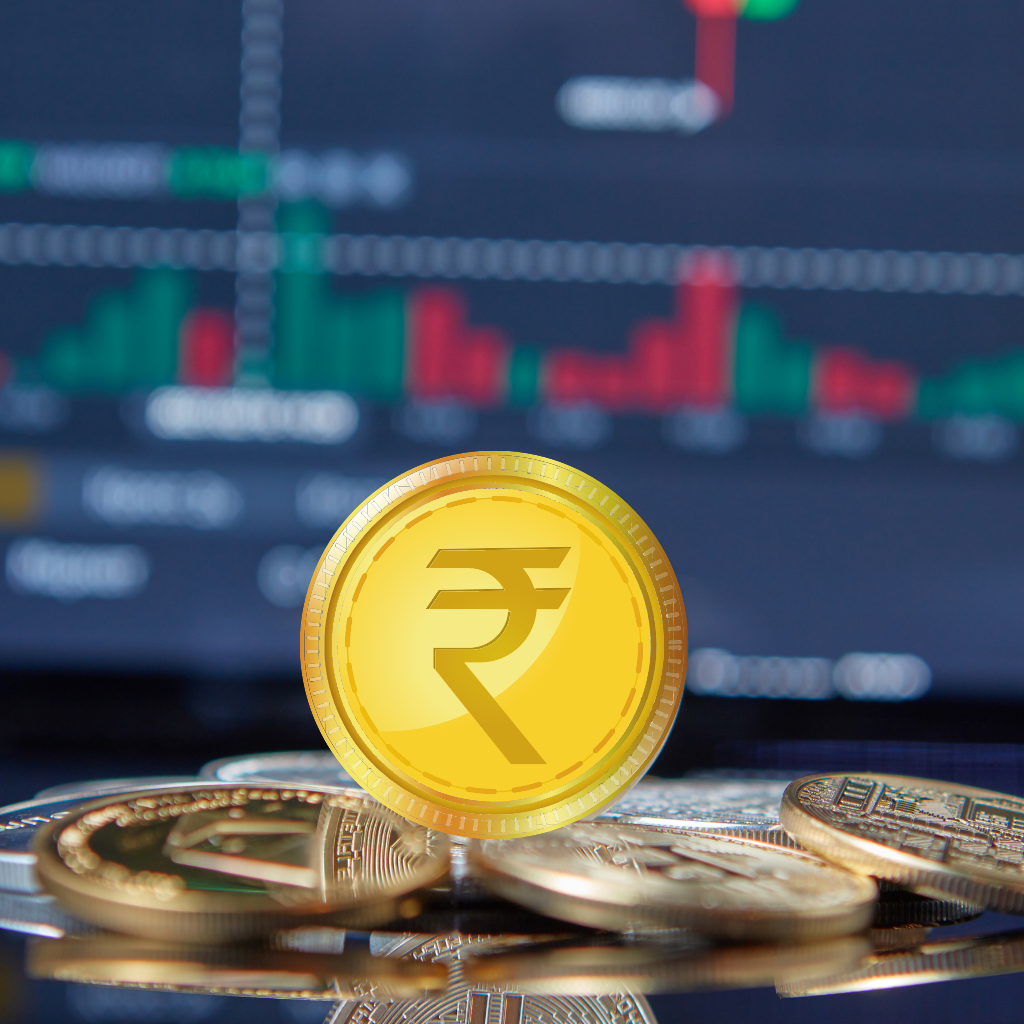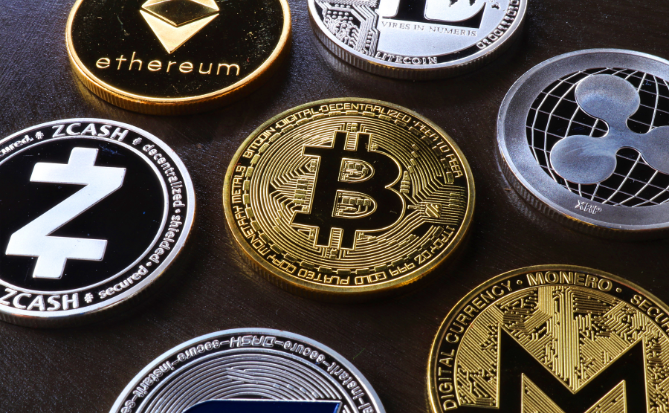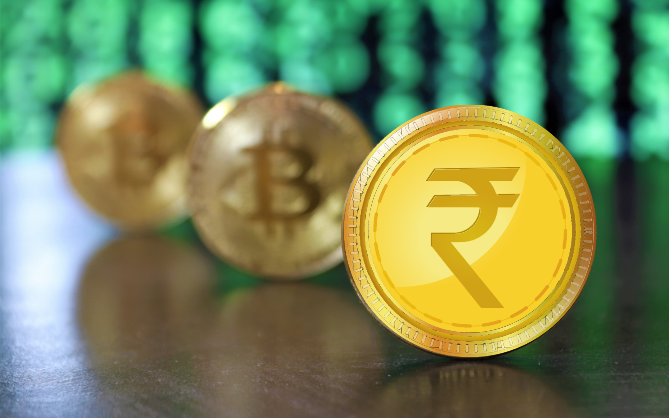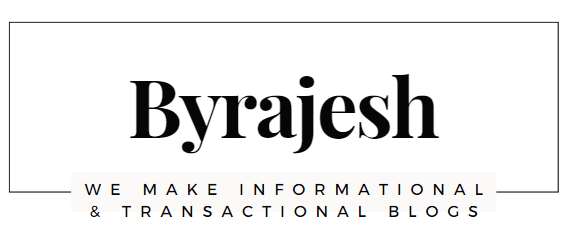RBI Digital Currency and What is the need of CBDC?
What is Digital Currency?
A Digital Currency is an electronic version of money issued by a Central Bank. Unlike traditional cash, it isn’t printed by a government institution, rather it’s generated digitally by the central bank itself. This makes it completely independent of inflation rates and political pressures. In short, it’s a way for governments to issue money without having to print it themselves.
The idea behind Digital rupee is simple – speed up financial transactions. Rather than waiting days or weeks for checks to clear, you could wire funds instantly. Or you could send a payment directly to someone’s account, bypassing a third party entirely. Digital Currency can be converted into paper currency.
What is a CBDC?
A central bank digital currency (CBDC) is a digital fiat designed to work within a national monetary system and it is issued by a Reserve Bank of India (RBI). A CBDC could include features such as stable value, low transaction fees, instant transfers, and international payments. These characteristics make it easier for businesses to accept CBDCs as payment. In addition to being used for everyday transactions, CBDCs could potentially replace traditional forms of money. CBDC transactions will be similar to physical cash transactions.
A CBDC wallet stores a private key, which gives access to the funds, and a public key, which identifies you and lets others know where the money came from.
What is the need of CBDC?
There are several benefits associated with CBDCs. First, they eliminate the risk of counterfeiting. Because there is no third party involved in the process, it becomes much easier to detect fraudulent activity.
Second, they offer greater security. Users can rest assured knowing that their money is safe because it is stored in a secure environment.
Third, they improve efficiency. By eliminating intermediaries, businesses save money on fees, transaction costs and processing times.
Fourth, they enable instant settlements. With CBDCs, you don’t need to wait days for funds to clear. You simply send the payment to another account holder instantly. CBDC will bring down time, cost for cross border transactions.
Finally, it will reduce settlement risk and dependency on cash. CBDC will be an additional payment avenue to users.
What is the motivation behind the Central bank issuing Digital Currency?
The rise of cryptocurrencies like Bitcoin and Ethereum has led some experts to predict that central banks will eventually follow suit. These cryptocurrencies are unregulated, volatile and it is a threat to the monetary policy tracking.
While many people think of central banks issuing digital currencies as a way to combat cybercrime, there are other reasons why central banks are doing it. For example, central banks are trying to make financial systems safer and more efficient. They want to ensure that consumers don’t lose access to their funds due to theft, fraud, or natural disasters. They also want to prevent counterfeiting, tax evasion and money laundering.
In addition, central banks are concerned about the potential effects of cryptocurrencies on financial stability. Some economists believe that cryptocurrencies could cause inflation because of their limited supply. Others argue that cryptocurrencies could lead to bubbles and crashes.
Central banks are worried that cryptocurrencies could undermine confidence in fiat currencies and destabilize economies. To overcome these issues,Honorable Finance Minister Nirmala Sitharaman announced that she had approved a draft bill that aims to launch a digital currency.
Central banks are interested in creating their own digital currencies because they see it as a tool to increase transparency and efficiency within their respective countries. A central bank could use a digital currency to track spending patterns across different departments. Or it could use a digital currency for cross-border payments.
Central Banks are issuing digital currencies, making it easier to manage and store, while helping to eliminate counterfeit money and reducing tax evasion.
How Will CBDC be issued?
Honestly, no one knows exactly how a CBDC would be issued and operated. However, the RBI has already issued guidelines to help companies develop products that comply with regulations.
Former RBI Governor D Subbarao said it could be achieved in 2 ways.
- People can directly open accounts with RBI
- People can open accounts with RBI through Central Banks (Act like Agency)
CBDC Accounts with RBI Will lose banks Business?
A central bank digital currency (CBDC) eliminates the need for inter-bank settlements and allows people to do direct settlements with RBI accounts. Does it mean that banks won’t have to hold customer funds anymore? People may move money from savings accounts to their CBDC accounts? Which means the bank will have less money to give loan? There are many unanswered questions However, the RBI has already issued guidelines to help companies develop products that comply with regulations..
Above concerns are discussed with RBI by the banks. One of the solutions is, people who deposited the money in the Savings Bank account will earn interest but the money available in the CBDC account will not earn the interest.
People have to use it like a digital wallet, the amount going to use today will be transferred to a CBDC account. The digital wallets of users do not require a bank account to be held by them to transact using digital currency.
Difference between Cash, UPI and CBDC Payment Systems
Cash | UPI | CBDC |
Physical Currency | Digital currency | Digital currency |
Buyer to Seller there is no intermediary in transaction | Intermediated through Banks | Buyer to Seller transactions will happen through CBDC accounts. No need for inter-bank settlements. |
Anonymous Transaction | Transactions will be tracked | Transactions will be tracked |
Settlement will happen immediately | Frontend transaction will happen immediately but banks bear risk till settlement is complete | Frontend & backend settlement will happen immediately like wallet to wallet payment transfer |
Physical currency will be replaced by Digital Rupee?
What happens when there isn’t enough physical money to go around? What about the millions of unbanked people who don’t have access to traditional banking systems? Digital currencies are meant to supplement, rather than replace physical currencies. They will be issued via mobile phones or bank accounts and will use blockchain technology to ensure security. This new form of currency could help people who don‘t want to carry large amounts of cash around.
The idea behind digital currencies is simple. Instead of carrying around paper money, you store it digitally on your phone or computer. You send payments over the internet and receive them instantly.
These new digital currencies will be backed by real-world assets such as gold or silver. The value of each unit of digital currency will depend on how much of those assets exist.
This new form of currency will allow people to make purchases without having to exchange hard cash. It won’t take long for someone to start accepting digital currency for goods and services.
What are the Risks involved in CBDC?
There are few risks involved in CBDC. Those are,
- Loss of anonymity
- Cyber Risk
- Banks may struggle to retain low cost deposits
CBDC Pilot Launch
The Reserve Bank of India (RBI) has launched the pilot version of digital currency on 1st of Nov 2022. During the pilot projects 9 public sector banks will settle their secondary market transactions in government securities. These includes,
- State Bank of India
- Bank of Baroda
- HDFC Bank
- Union Bank of India
- Yes Bank
- Kotak Bank
- HSBC Bank
- IDFC Bank
- ICICI Bank
Within a month RBI is also expected to conduct a similar pilot launch in a closed user group of consumers and merchants which means retail payments.
The Reserve Bank of India has been studying the benefits and challenges of CBDC for some time. Then RBI will review and improve the strategy of digital currency.
Meet Rajesh

I am Rajesh from India, the founder and owner of byrajesh.com
Currently I am working as an Automation Test Analyst in an MNC Company, while working in a comfortable position I always think of my future and next move.

COPYRIGHT ©2022, BY byrajesh. ALL RIGHTS RESERVED.




